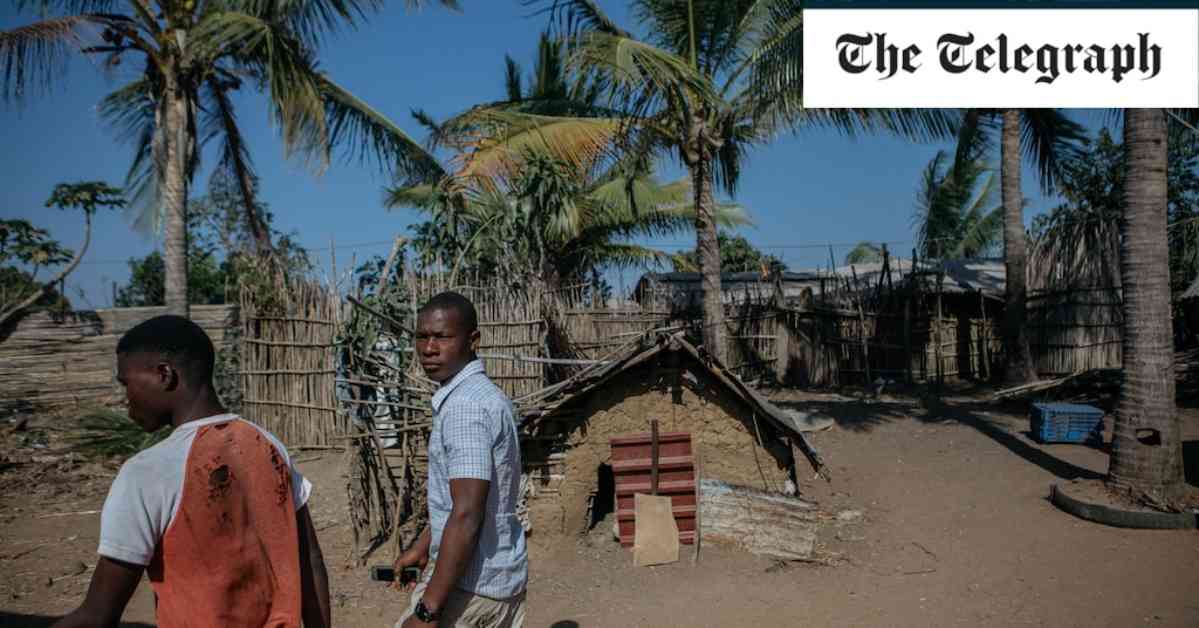Mozambique’s Gas Industry Facing Threat from Islamic State Extremists: Impact and Solutions
The gas industry in Mozambique is under a significant threat from extremists associated with the Islamic State, leading to grave consequences for the country’s stability and development. The resource-rich Cabo Delgado province has become a battleground for violent attacks, resulting in the deaths of over 6,000 civilians and the displacement of 1.3 million people from their homes.
The Rise of Extremism in Cabo Delgado
One harrowing account of the violence comes from Regina Jasinto, who witnessed jihadists brutally attack her village of Muidumbe, leaving death and destruction in their wake. Forced to flee with her family, they sought refuge in a resettlement camp in Metuge Province, where they have been living in uncertainty for seven years. The violence that forced them from their home was fueled by the presence of Islamic State Mozambique (ISM), a militant group that emerged in the region and quickly gained notoriety for its ruthless tactics.
The Impact of Natural Resources
Cabo Delgado’s abundance of natural resources, including large reserves of natural gas, has attracted the attention of foreign investors seeking to capitalize on the region’s wealth. However, the exploitation of these resources has not translated into meaningful development for the local population, with the majority of residents living in poverty without basic amenities like electricity and running water. The disconnect between the resource wealth and the dire living conditions of the people has created a breeding ground for discontent and conflict.
The Role of the Mozambican Government
The Mozambican government’s handling of the gas projects in Cabo Delgado has further exacerbated tensions in the region. Large-scale projects like the Afungi LNG park have led to the displacement of hundreds of families, who were relocated to inadequate resettlement camps far from their original homes. The lack of engagement with local communities and the failure to provide promised compensation have deepened resentment towards the government and fueled grievances that extremist groups exploit for their own agenda.
Socioeconomic Drivers of Conflict
Research has shown that extreme poverty and economic marginalization are key factors in driving individuals towards radicalization. The promise of wealth from natural resource extraction has not materialized for the majority of Mozambicans, leading to widespread disillusionment and discontent. The government’s focus on short-term gains and its failure to negotiate equitable contracts with foreign investors have contributed to the socio-economic disparities that underpin the conflict in Cabo Delgado.
Security Concerns and Militarization
The Mozambican government’s response to the insurgency in Cabo Delgado has been characterized by a heavy-handed military approach that has proven ineffective against the well-equipped and highly capable insurgents. The hiring of mercenaries from the Wagner Group to bolster counter-insurgency operations ended in failure, highlighting the challenges faced by the Mozambican military in combating the insurgency. The reliance on foreign mercenaries and outdated military equipment has exposed the government’s limitations in addressing the root causes of the conflict.
Community Resilience and Displacement
For families like Amissana Yasini’s, who have been forced to flee their homes and seek refuge in resettlement camps, life has been marked by uncertainty and hardship. The lack of security in these camps, coupled with environmental challenges like drought, has added to the struggles faced by displaced communities. Despite the hardships, many displaced individuals remain resilient and hopeful for a better future, calling for meaningful engagement from the government and a focus on addressing the underlying causes of the conflict.
The Way Forward: Solutions and Strategies
To address the complex challenges facing Mozambique’s gas industry and the threat posed by Islamic State extremists, a multi-faceted approach is needed. This includes:
1. Collaborative Engagement: The government must prioritize meaningful engagement with local communities to address their grievances and ensure that the benefits of resource extraction are shared equitably.
2. Sustainable Development: Investments in education, healthcare, and infrastructure are crucial to improving the quality of life for Mozambicans and reducing the appeal of extremist ideologies.
3. Transparency and Accountability: The government must be transparent in its dealings with foreign investors and hold them accountable for their actions, ensuring that revenues from natural resource extraction benefit the local population.
4. Conflict Resolution: A comprehensive approach to conflict resolution that addresses the root causes of the insurgency in Cabo Delgado is essential to achieving lasting peace and stability in the region.
In conclusion, the threat posed by Islamic State extremists to Mozambique’s gas industry is a complex and multi-dimensional challenge that requires a holistic and collaborative response. By addressing the underlying socio-economic drivers of conflict, promoting sustainable development, and fostering community resilience, Mozambique can chart a path towards peace and prosperity for all its citizens.












